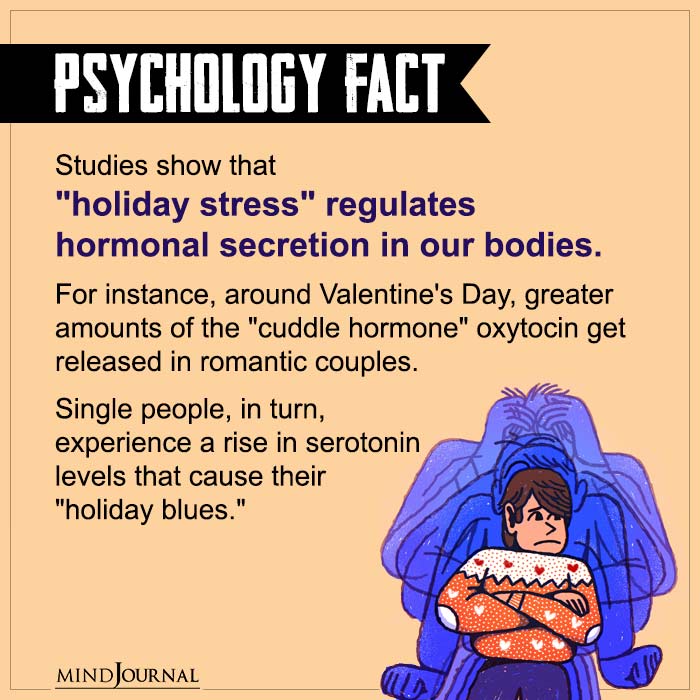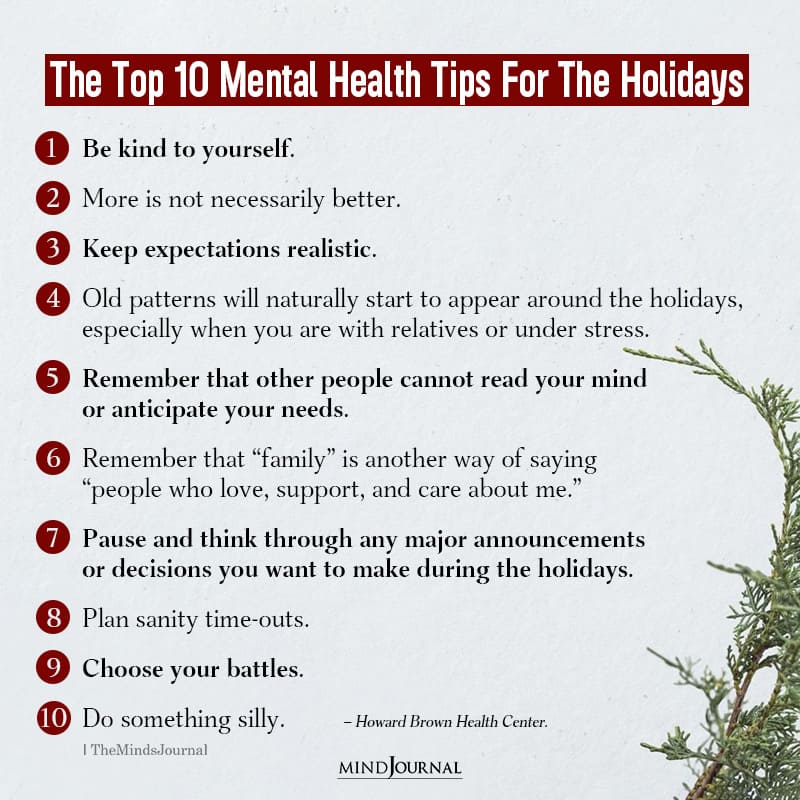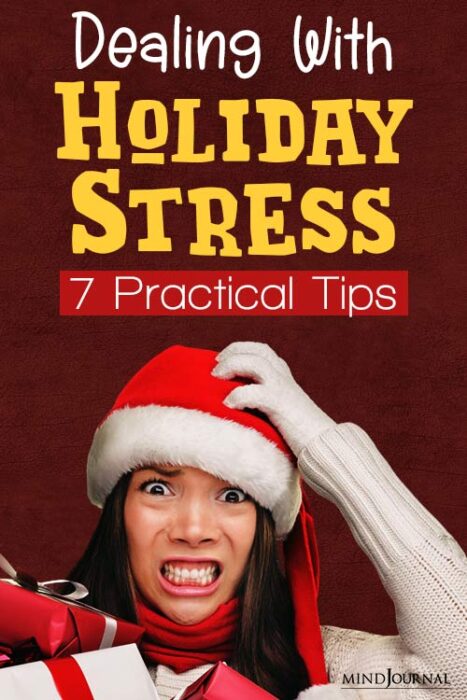When you think about the holidays, you think about feeling happy, spending time with family and friends, taking a break from work and chilling. All in all, it’s a happy zone to be in. However, just like happiness is synonymous with the holidays, so can be holiday stress. So, what can you do when you are dealing with holiday stress?
With several things to do during this festive season like shopping for presents, making sure all family members are together and all sorts of other activities, no wonder you may feel exhausted, stressed and anxious during this time of the year.
In this article, we will discuss seven practical tips to avoid holiday stress. Coping with holiday stress does not have to be impossible or complicated; sometimes the simplest things can help you deal with this.
So take a deep breath, get yourself a cup of hot chocolate and read on to know more about how you can turn this festive season into your best time ever. But before we get into the mental health tips for the holidays, let’s talk about what we really mean by holiday stress.
Related: 9 Tips For Coping With Holiday Stress And Depression
What Is Holiday Stress?
When you feel mental pressure, anxiety, and you feel increasingly overwhelmed the more the holidays draw near, that’s when you know you are suffering from holiday stress.
It’s like you are being pulled in different directions, trying to satisfy everyone and feeling like there isn’t enough time or resources for anything. The holiday season can be a whirlwind of duties; from shopping for gifts to planning get-togethers, decorating the house and making budgets.
There is added pressure during the holidays because everyone wants it to be perfect. All of these factors can take a toll on you and make you feel extremely overwhelmed and stressed out. And that’s why it’s important to know how to go about coping with holiday stress.
Now, let’s explore some tips for holiday stress management.

7 Practical Tips For Dealing With Holiday Stress
1. Make sure you plan ahead, and not leave things for the last moment.
This is the most important thing you need to do when it comes to dealing with holiday stress. The holiday season can be overwhelming when you start to prepare. Traffic, work commitments, and many other issues may cause us to feel stressed. The best way to avoid this is by planning ahead.
Begin with a list of all the activities you’ll need to do during the holidays. This list will give you an idea of the larger perspective and consequently help you prioritize what has to be done first and foremost. Once you note down everything by hand, it will be difficult to forget or miss out on anything.
Planning ahead makes you feel well-organized and in control. When you have everything planned, you will notice that you are being able to handle all your responsibilities more effectively, and enjoy the holiday season in peace and happiness.
2. Trying to control every little thing will only make you feel more stressed out.
One of the major reasons behind holiday stress is the need to control and micro-manage everything and that too on your own. The truth is, something or the other is always going to go wrong, and you know what? That’s okay. Maybe that’s part of the process.
You might feel overwhelmed and stressed out, and that’s okay; that’s quite normal actually. You might feel lonely or sad, and that’s okay too. Just because it’s Christmas or New Year, that doesn’t mean you mental health issues will magically disappear.
If you are feeling lost, anxious or down, take one step at a time. Focus on the things you can control. If you feel like things are spiralling out of control, then take a minute to yourself, a few deep breaths or talk to someone about your feelings for holiday stress management.
Related: How To Cope With Anxiety And Depression During Christmas: 14 Ways To Bring Some Cheer
3. Stick to your healthy habits and try not to fall off the wagon.
This is one of the most important tips to avoid holiday stress, and one that can probably help you the most.
During the holiday season, healthy habits often take a backseat. Nevertheless, it is crucial to consider your health and wellness before every other thing. For example, you can add a fast morning workout in the list of things to do in order to improve decision-making capacity during the day and feel more energetic and happy.
Get your family involved in fun activities like snowshoeing or sledding to stay active. Try not to over-eat or over-indulge in foods and drinks, so that you don’t feel worse afterwards.
4. Plan your expenses smartly.
The holiday season means more expenses, and even though it’s okay to spend a bit more than usual to pamper your loved ones, going all out will only create more problems.
Make a budget and make sure you stick to it. Get lovely presents for your family and friends, but don’t forget that you have other financial obligations too, like paying bills. Try to stay away from buying presents that will blow a hole in your pocket and put you in debt till next year.
Choose gifts that are thoughtful and meaningful but which are within your budget. Making the holiday season special doesn’t have to mean blowing a massive hole in your bank accounts. This is one of the most underrated holiday stress tips there is.

5. Prioritize yourself and your needs.
Even amidst all of the holiday cheer, you should never forget self-care. When you prioritize yourself, caring for others becomes easier. Make sure to set aside dedicated time for activities that bring you joy.
Whether it’s exercising, eating a meal in a decent restaurant or just go outside and take a deep breath, ensure you find these moments that make you happy. And don’t underestimate the importance of having a good night’s sleep.
By putting yourself first and practicing self-care, you will be able to approach the holiday season with peacefulness and stability. This is one of the best things you can do when dealing with holiday stress.
Related: 5 Simple Ways To Beat Holiday Stress And Spend Quality Time With Family
6. Have realistic expectations from everyone, including yourself.
Keep in mind that you are but a single person who cannot do everything by themselves. It’s important to be honest with yourself about what you can manage during this time of year.
Forget the idea of being perfect and breathe as you enjoy the company of your loved ones around you. Unwind and relax with the people you love, because at the end of the day, that’s what the holiday season stands for.
You should not feel guilty when taking care of yourself and rejoicing in small things that bring you happiness during holidays. Give yourself the freedom to relax, stay mindful and love yourself.
7. Don’t hesitate to say ‘no’ when needed.
Always remember that it’s okay to say ‘no’ when things start to get too much. Say “yes” to things that make you happy, and doesn’t stress you out. Extra hours of work may be worth it if it means you can spoil a special person.
However, when a distant relative who always makes fun of you, and doesn’t know where their boundaries lie, feel free to tell them ‘no’.
You will be less stressed and happier when you make decisions that are best for your own interests. Saying no is one of the best things you can do for yourself when it comes to coping with holiday stress.
The holiday season is always meant to be a time for celebrating, joy, love, happiness and family. Wanting to make your loved ones feel special and giving your best to make Christmas memorable is an admirable thing to do, but not at the cost of your mental and physical health.
Embrace the spirit of mindfulness and gratitude this holiday season and make the most of it. You will understand why this is one of the best mental health tips for the holidays.
Related: Hate Christmas: 8 Things I Hate About Christmas and Reason Why
Which of these holiday stress tips did you find the most useful? Are you someone who has a hard time coping with holiday stress and dealing with holiday stress? Do let us know in the comments down below!









Leave a Reply
You must be logged in to post a comment.